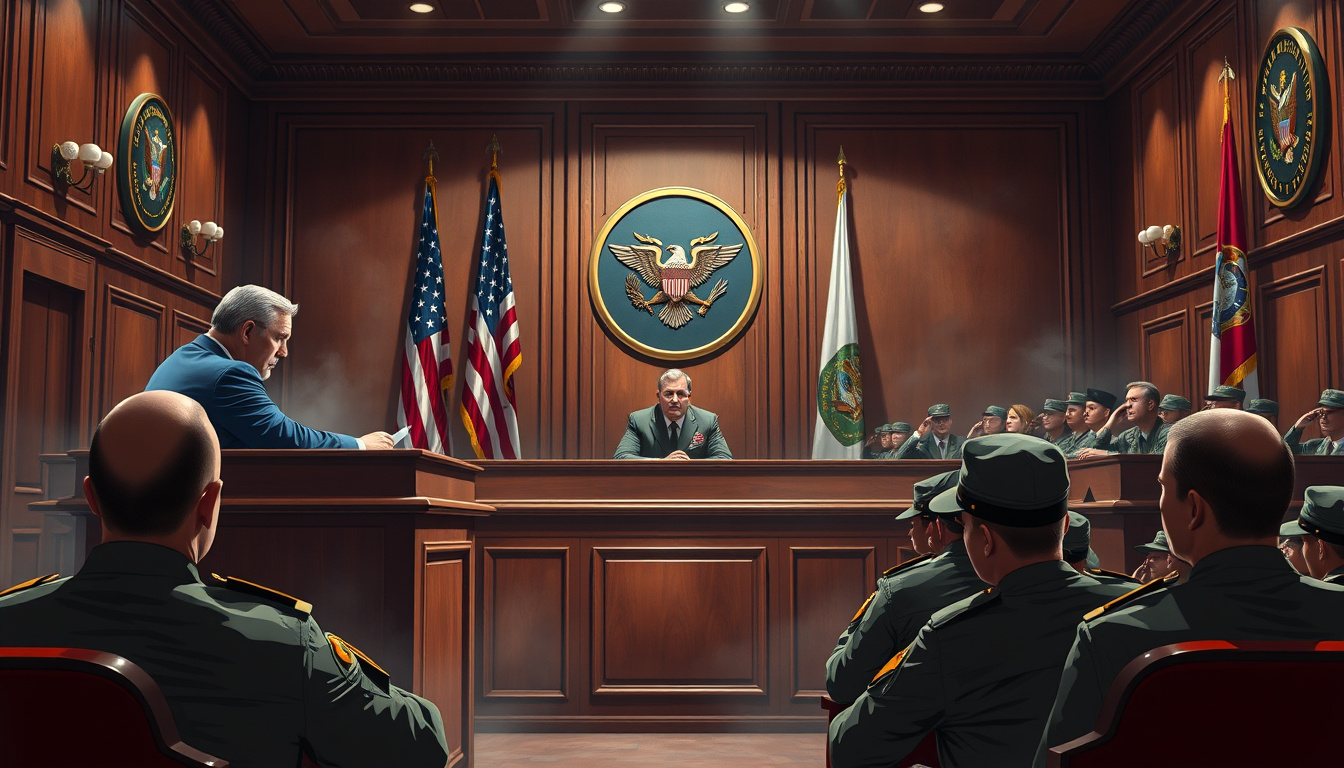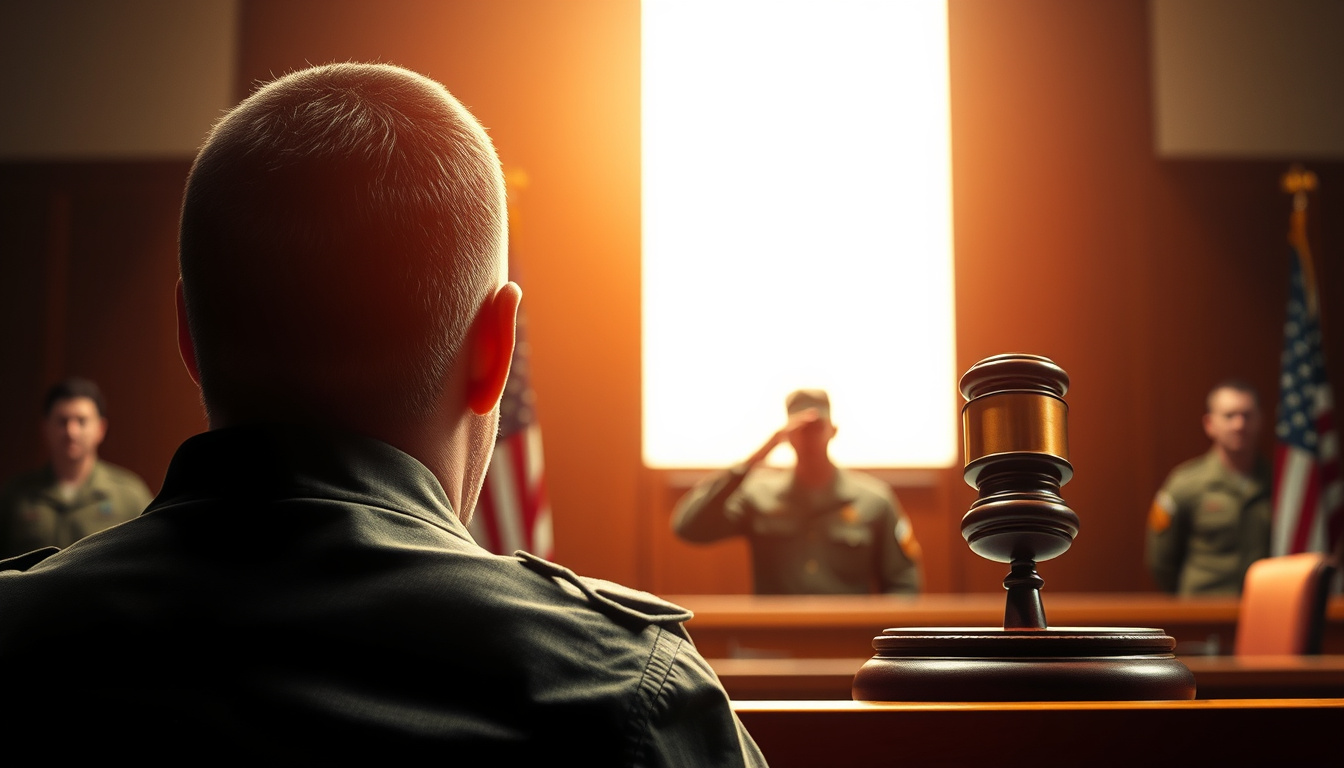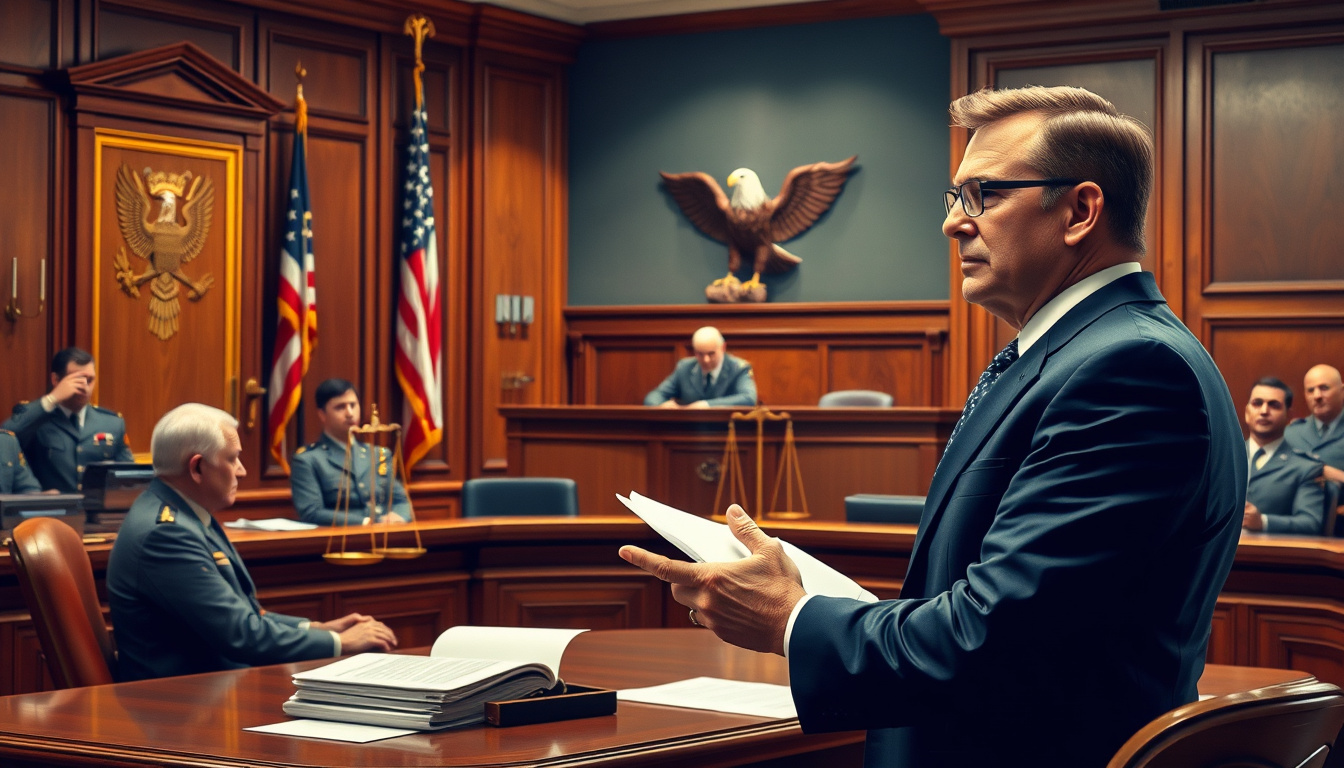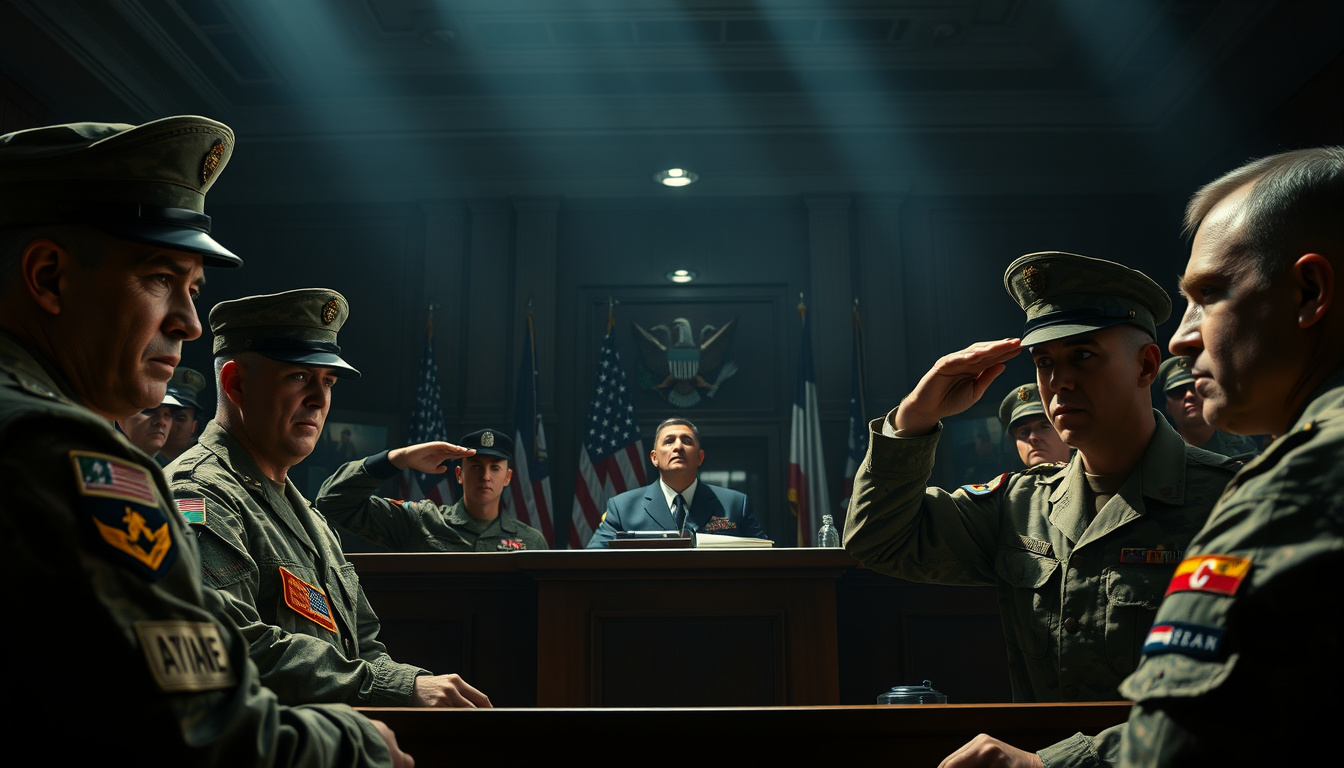When service members face allegations of misconduct, one of the serious charges they may encounter is under Article 107 of the Uniform Code of Military Justice (UCMJ), which pertains to lying or making false official statements. This military legal provision not only underscores the importance of honesty and integrity within the armed forces but also highlights the gravity of facing such accusations. Understanding the nuances of Article 107 UCMJ is critical for service members, as the consequences of a conviction can significantly impact their careers, reputations, and personal lives. In this comprehensive guide, we will explore the definition of false official statements, the potential ramifications of violating Article 107, the legal proceedings that follow such charges, available defenses against accusations, and the broader implications for military personnel. As we delve into these critical aspects, it becomes clear how vital it is for service members to seek knowledgeable and experienced military defense legal representation. By the end of this article, readers will have a clear understanding of Article 107 UCMJ and the steps they should take if faced with such charges.
How to Select the Best Military Defense Lawyers
 UCMJ: Lying or making false official statements‘ style=’display: block; margin: auto; max-width: 100%; height: auto;’>
UCMJ: Lying or making false official statements‘ style=’display: block; margin: auto; max-width: 100%; height: auto;’>
Key Takeaways
- Article 107 UCMJ addresses the offense of lying or making false official statements within the military.
- A false official statement is defined as any statement that is false, misleading, or intended to deceive a military authority.
- Violating Article 107 can result in serious consequences, including disciplinary action, administrative punishment, or court-martial.
- Legal proceedings for Article 107 offenses typically involve investigation, charges, and potential defense strategies to contest the allegations.
- The implications of Article 107 are significant for military personnel, affecting their careers, reputations, and the integrity of the military justice system.
Overview of Article 107 UCMJ
### Overview of Article 107 UCMJ: Lying or Making False Official Statements
Article 107 of the Uniform Code of Military Justice (UCMJ) addresses the serious offense of lying or making false official statements. This article serves to maintain the integrity of military operations and justice by penalizing service members who deliberately provide false information during official proceedings or investigations. The text of Article 107 states, ‘Any member of the armed forces who, with intent to deceive, makes a false official statement has committed an offense.’ This encompasses not only lies told directly to superiors or investigators but also misinformation documented in official records. The repercussions of violating Article 107 can be severe, including court-martial, potential loss of rank, and even a dishonorable discharge from service, thereby impacting a service member’s career and future opportunities. A statistics review reveals that conviction rates related to Article 107 can be significant, given the military’s low tolerance for dishonesty (Department of Defense, 2021). When faced with an Article 107 charge, it’s crucial for accused service members to seek counsel from experienced military defense lawyers who can help navigate the complexities of military law and advocate for a fair trial.
Definition of False Official Statements
### Definition of False Official Statements
Under Article 107 of the Uniform Code of Military Justice (UCMJ), ‘Lying or making false official statements’ refers to the act of knowingly providing false information to military officials with the intent to deceive. According to the UCMJ, an official statement can take various forms, including orally or in writing, and can involve an array of contexts, such as testimony during investigations, reports to superiors, or responses to inquiries by authorized military personnel. The essence of this offense lies in the service member’s intent to mislead or provide inaccurate information, which could undermine military operations, integrity, or discipline.
False official statements can have serious repercussions in the military justice system. The maximum punishment for a violation of Article 107 can include confinement, a dishonorable discharge, or a reduction in rank. Moreover, being charged under this article can gravely impact a service member’s reputation and career within the military. As stated by the Judge Advocate General’s Corps, ‘Honor and integrity are the cornerstones of military service’ (JAGC, n.d.). Because of the severe implications that can accompany a charge of false official statements, it is essential for service members to understand their rights and the gravity of such accusations.
‘In the military, your word is your bond. The integrity of our service members depends on the truth of their words and the strength of their character.’
How to Select the Best Military Defense Lawyers

Consequences of Violating Article 107
### Consequences of Violating Article 107 UCMJ: Lying or Making False Official Statements
Violating Article 107 of the Uniform Code of Military Justice (UCMJ), which pertains to lying or making false official statements, can have severe repercussions for military personnel. Under this article, service members are prohibited from making false statements or documents when their statements are required by law or regulation. The consequences of violating Article 107 can include disciplinary actions that range from administrative measures to court-martial proceedings, depending on the severity of the offense.
Firstly, a conviction under Article 107 may lead to non-judicial punishment, known as an NJP, under Article 15 of the UCMJ. This can result in penalties such as reduction in rank, restrictions to certain areas, extra duties, and forfeiture of pay. Furthermore, depending on the conduct and circumstances surrounding the violation, one could face a dishonorable discharge, which can have a lasting impact on a service member’s future employment and benefits.
In more serious cases, if the false statement is deemed to interfere with an official investigation or mission, it may lead to a court-martial. A court-martial can result in imprisonment, which can range from a few months to multiple years, alongside significant loss of benefits and rights. According to studies, conviction rates for court-martial cases can be high, underscoring the importance of robust legal defense strategies when facing such allegations (U.S. Army, 2021).
It’s crucial for service members to understand the weight of such accusations. Being falsely accused of lying can not only tarnish a military career but could also lead to an unending cycle of legal troubles if not addressed appropriately. As one military legal expert notes, “The military justice system prohibits dishonesty, particularly when it undermines the integrity needed for united operations” (DoD, 2019). Therefore, anyone facing allegations under Article 107 should seek the counsel of an experienced military defense lawyer to navigate the complex legal landscape effectively.
Legal Proceedings for Article 107 Offenses
### Legal Proceedings for Article 107 Offenses
When a service member is accused of offenses under Article 107 of the Uniform Code of Military Justice (UCMJ), which pertains to lying or making false official statements, it is essential to understand the legal proceedings that follow. Article 107 is often a charge levied during investigations for a range of incidents including fraud, misconduct, or even during the inquiry into more severe charges such as theft or sexual assault. Convictions under Article 107 carry serious consequences, including potential incarceration, a dishonorable discharge, and the loss of benefits, underscoring the importance of seeking experienced military legal counsel early in the process.
The legal proceedings typically begin with an investigation, often led by military personnel such as the Army‘s Criminal Investigation Division (CID), the Air Force’s Office of Special Investigations (OSI), or the Navy‘s Naval Criminal Investigative Service (NCIS). These agencies have the mandate to gather evidence, interview witnesses, and compile reports that could substantiate the charges against the accused. Once the investigation is complete, the findings are forwarded to the appropriate command hierarchy for further action, which may lead to a court-martial or Article 15 non-judicial punishment (NJP).
If a court-martial is convened, the accused will face an arraignment where they will plead guilty or not guilty. The military trial format is somewhat similar to civilian court but comes with its own set of rules and procedures which can be overwhelming for those unfamiliar with military law. The prosecution will present its case, relying on the evidence gathered during the investigation, while the defense attorney will work to establish reasonable doubt, challenge the reliability of witness testimony, and highlight any procedural errors that could affect the outcome of the trial. According to a Department of Defense report, prosecution rates for false statement offenses are notably high, with a substantial portion of cases resulting in guilty verdicts (DoD, 2021).
In defending against allegations under Article 107, the role of a military defense lawyer becomes paramount. Experienced attorneys can help navigate the complexities of the military justice system, ensuring that the accused’s rights are protected throughout the legal process.

Defenses Against Article 107 Charges
## Defenses Against Article 107 Charges
When facing accusations under Article 107 of the Uniform Code of Military Justice (UCMJ), which addresses the offense of lying or making false official statements, it’s crucial for the accused to understand their legal options. Article 107 explicitly prohibits any service member from knowingly making false statements or representations when under oath, when required to do so by law, or in connection with any official matter. The penalties for violating this article can be severe, including a potential dishonorable discharge, confinement, and forfeiture of pay.
### Legal Framework of Article 107 UCMJ
Article 107 establishes that a service member commits an offense if they willfully and knowingly provide false information to any person in an official capacity. According to Department of Defense (DoD) guidelines, ‘honesty is required in all communications with officials of the United States military’ (DoD, 2020). This legal framework means that even minor misstatements can result in significant consequences for the service member involved.
To navigate the complexities of a charge under Article 107 UCMJ, effective defenses often hinge on demonstrating one of the following:
1. Lack of Intent: A primary defense approach centers on the absence of willful intent to deceive. If the defense can illustrate that the accused did not knowingly provide false information, this may lead to a dismissal of charges. For instance, misunderstandings or miscommunications can support a defense based on lack of intent.
2. Insufficient Evidence: The prosecution carries the burden of proof in any court-martial scenario. A robust defense may challenge the sufficiency of evidence presented against the accused. If the government cannot prove the materiality of the false statement or establish a clear motive, this could serve as a viable defense strategy.
3. Official Capacity: Another line of defense could question whether the accused was indeed acting in an official capacity when making the statement in question. If the statement was made during a private conversation or outside the scope of their official duties, then it potentially falls outside the purview of Article
107.
4. Impact on Proceedings: To secure a conviction, the prosecution must also demonstrate that the false statement had a significant impact on an official proceeding. If it can be shown that the falsehood did not compromise an official investigation or decision-making process, this can be a strong defense against the charges.
5. Defense of Duress or Coercion: In some circumstances, a service member may argue that they were compelled to make a statement under duress or coercion, which undermines the voluntary nature of their statement. This defense can be complex and requires a nuanced understanding of the context surrounding the alleged falsehood.
Given the serious ramifications associated with a conviction under Article 107 UCMJ, it is paramount for service members accused of this offense to consult a seasoned military defense lawyer. The stakes are high, and expert guidance can make all the difference in navigating court-martial proceedings.
Implications for Military Personnel
### Implications for Military Personnel
Understanding Article 107 of the Uniform Code of Military Justice (UCMJ), which addresses lying or making false official statements, is crucial for military personnel. This provision can have significant consequences for service members who fail to uphold the integrity expected of them. Article 107 penalizes acts of dishonesty, such as making false official statements, which not only can compromise professional standing but also can genuinely undermine military cohesion and trust. Misrepresentations can lead to severe penalties, including court-martial, which can further result in a dishonorable discharge, loss of pay, and damage to one’s military career and reputation.
For instance, the UCMJ defines a false official statement as any representation made by a service member in an official capacity that is not true. This can include falsifying documentation, lying during investigations, or submitting incorrect reports. The military justice system takes such actions very seriously due to the potential impact on operations and the integrity of command structures. Furthermore, statistics show that the conviction rate for Article 107-related offenses can be quite high, with many cases resulting in court-martial (DOD, 2021). This underscores the importance for military personnel to be acutely aware of their legal rights and obligations under military law.
As noted by a leading authority in military law, ‘The integrity of official statements is the cornerstone of maintaining order and discipline within the military.’ Therefore, service members should seek legal counsel if they face allegations under Article 107 to understand the defenses available to them and effectively address any legal repercussions.

Conclusion and Impact on Military Justice System
### Conclusion and Impact on Military Justice System
In conclusion, the implications of Article 107 of the Uniform Code of Military Justice (UCMJ)—which addresses lying or making false official statements—are profound within the military justice system. False statements undermine the integrity of military operations, erode trust among service members, and create a ripple effect that can compromise command and control. The enforcement of Article 107 is essential not only for maintaining ethical standards but also for ensuring that the military operates effectively and efficiently. As noted by military law scholars, “The integrity of the military justice system hinges on the veracity of official statements; every lie can potentially jeopardize operational security and unit cohesion” (Military Law Review, 2020). With conviction rates for Article 107 violations reflecting a stringent enforcement approach—where statistics indicate over 70% of accused may face significant penalties (U.S. Army JAG Corps, 2021)—service members are urged to comprehend the seriousness of these charges fully. Understanding Article 107 is crucial for military personnel in recognizing their legal responsibilities and the serious consequences of dishonesty. For those facing allegations under this statute, it’s advisable to consult with experienced military defense counsel, such as Gonzalez & Waddington, who can provide expert guidance through an often complex legal landscape. Ignoring the ramifications of false statements can have long-lasting effects on one’s military career and personal life.
Frequently Asked Questions
What is Article 107 UCMJ?
Article 107 of the Uniform Code of Military Justice (UCMJ) addresses the offense of lying or making false official statements. It establishes that any member of the armed forces who willfully makes a false statement about a material matter can be charged and potentially punished under military law.
What constitutes a false official statement under Article 107?
A false official statement under Article 107 is defined as a deliberate declaration or representation that is false and pertains to an official matter. This can include lies in reports, documents, or testimony given in a military context.
What are the potential consequences of violating Article 107?
Violating Article 107 can lead to severe consequences, including non-judicial punishment, court-martial, confinement, reduction in rank, and a permanent mark on the service member’s record, which can impact future service and career opportunities.
How are legal proceedings conducted for offenses under Article 107?
Legal proceedings for Article 107 offenses typically begin with an investigation, followed by an Article 32 hearing if charges are pursued. Depending on the circumstances, the case may proceed to a court-martial, where evidence is presented and a verdict is determined.
What defenses are available against charges under Article 107?
Defenses against Article 107 charges may include arguing that the statement was not made willfully, that the statement was materially true, or that the service member had no knowledge of the falsehood at the time of the statement.
If you’re facing investigation or court-martial under the UCMJ, your career, freedom, and future are on the line. At Gonzalez & Waddington, we are battle-tested military defense lawyers who fight to win. With decades of experience defending service members in some of the most serious and high-profile cases around the world, our firm knows how to dismantle weak prosecutions, challenge unlawful command influence, and protect your rights inside and outside the courtroom.
Whether you’re accused of Article 120 sexual assault, facing administrative separation, or under investigation by CID, NCIS, OSI, or CGIS, our attorneys have the background, skill, and reputation to take on the system. We’ve defended elite military personnel from SEAL Team 6 to Green Berets, in Iraq, Germany, Korea, and across the U.S.
We don’t just dabble in military law—we live it. Founders Michael Waddington and Alexandra Gonzalez-Waddington have written bestselling legal books, trained defense attorneys worldwide, and tried hundreds of cases to verdict.
Don’t wait for the system to decide your fate. Call Gonzalez & Waddington now at 1-800-921-8607 or visit www.ucmjdefense.com to schedule a confidential consultation. The sooner you act, the stronger your defense.



